‘No,’ thought Krymov, ‘this is no time for homeopathy. I must work with a surgeon’s knife. You need more than words to straighten out a political cripple.’
As a connoisseur of thick Russian books I’ve read War and Peace, The Brothers Karamazov, Crime and Punishment, Anna Karenina and now Life and Fate. Of these grand works Life and Fate is my standout favorite, a daring novel that could have booked Vasily Grossman an upper bunk in a Siberian work camp.
Life and Fate doesn’t follow a traditional narrative arc with a beginning middle and end. Rather, the book is a snapshot of World War II Russia, especially the events concerning the siege of Stalingrad and Germany’s occupation of Ukraine. Soldier’s banter, death camps, wartime strategy, prison camps, torture, political arrests, starvation, blind love, political indoctrination, totalitarian rule, arbitrary regulation, evacuation, air raids, frozen corpses, tank corps and vodka. It’s all there.
Vasily Grossman penetrates deeply into the human psyche and reveals motivations, fears and psychological foundations that few people have the ability to discern. My intention with this review is to draw parallels between the totalitarian forces of the 1940s and today’s social order. You might be surprised (or perhaps not) by some of the similarities.
Before we get into the heavy stuff let’s have a look at one of my favorite quotes from Life and Fate. Living in Stalingrad under constant artillery bombardment, a man is only as good as his living-quarters.
There was probably nowhere in the world where the construction of living-quarters was taken more seriously than in Stalingrad. These bunkers were built neither for warmth, nor in order to impress posterity. It was the likelihood of greeting the next dawn and eating the next meal that depended on the solidity of the beams, the depth of the communication trenches, the nearness of the latrine and the effectiveness of the camouflage.
When you were talking about someone, you always mentioned the quality of his bunker: ‘Batyuk’s done some fine work on Mamayev Kurgan with his mortars. He’s got a fine bunker by the way. A huge oak door just like the Senate. Yes, he’s certainly got a head on his shoulders.’ While of another man it might be said: ‘Well, what do you know, he was forced to retreat during the night. He had no liaison with his units and he lost a key position…As for his command-post, it was visible from the air. And he had a cape by way of a door—to keep out the flies, I suppose. An empty-headed fellow—I heard his wife left him before the war.’
Pure gold! But now let’s get on with the show.
He loved Big Brother
Disclaimer: for the rest of the review I’m going to treat Life and Fate as though it’s an account of real people. I’m committing a logical fallacy by doing so since this is a work of fiction. However, I trust Vasily to portray his characters honestly. Also, this book is largely historically accurate.
For me, the most revelatory learning of Life and Fate was coming to understand that many Soviet Citizens believed that their communist society was actually going to lead them to utopia. The “worker’s revolution” and “the people’s state” were not just slogans, there was a subset of the populace who were true believers. Many others were skeptical yet still unable to appreciate the full extent of the state sponsored evil.
I found this surprising because as a student of history I’m accustomed to seeing the USSR for what it was: a despotic state that murdered millions of people and made life hell for hundreds of millions more. I made the error of extrapolating my hindsight bias onto the people living in the moment.
This passage concerns the book’s chief protagonist, Viktor, who is being urged to sign a letter denouncing an innocent doctor. Viktor believes the letter the is rubbish, yet the doctor himself has confessed to the crime. But why?
Did he doubt that their confessions were genuine? Had they been coerced into making them, then? But there was only one way of forcing an honorable and intelligent man to confess to being a hired assassin, thereby making himself liable to an infamous execution—and that was torture. And it would be insane even to hint at that.
Viktor is an exceptional physicist, a highly educated man renowned in his field, and yet even with his highly capable intellect Viktor is unable to recognize the full tyranny of the Soviet state. Viktor claims, “it would be insane even to hint at that [torture],” and yet this is exactly what was happening!
There is a thread between Viktor’s inability to confront the truth and the way in which a certain subset of our population can’t or won’t acknowledge similar tendencies in our own society.
I don’t think the western governments are arresting their citizens en masse and forcing them to sign false confessions under threat of torture*. However, our governments are doing some really shady shit and regulatory capture is off the charts. If you’re like me you’ve probably had an experience where you try to talk to someone about what’s going on and you’ve been shut down. Called a conspiracy theorist or worse, even if you have clear data to back up your assertions (and the passage of time ends up proving your position correct). Frustrating!
*We are far more refined in the 21st century. We merely denounce a person online and then force them to grovel with a false apology in a desperate bid to keep their life intact.
There is solace in reading Life and Fate because you get a firsthand account of how this has all happened before. Humans will be humans, no matter the century. Also, one should appreciate that as a totalitarian system accrues power it becomes ever more risky to rock the boat. The path of least resistance is to follow the orders from on high and to question as little as possible. This doesn’t neccessarily mean that someone is a bad person when they go along with the trend, they may be just trying to survive in an increasingly hostile environment.
Experience showed that such campaigns make the majority of the population obey every order of the authorities as though hypnotized. There is a particular minority which actively helps to create the atmosphere of these campaigns: ideological fanatics; people who take a bloodthirsty delight in the misfortunes of others; and people who want to settle personal scores, to steal a man’s belongings or take over his flat or job. - What does this tell us? That a new trait has suddenly appeared in human nature?
No, this obedience bears witness to a new force acting on human beings. The extreme violence of totalitarian social systems proved able to paralyze the human spirit throughout whole continents. A man who has placed his soul in the service of Fascism declares an evil and dangerous slavery to be the only true good. Rather than overtly renouncing human feelings, he declares the crimes committed by Fascism to be the highest form of humanitarianism; he agrees to divide people up into the pure and worthy and impure and unworthy.
Despite his inability to imagine state sanctioned torture, Viktor falls squarely into the skeptic camp and throughout the book he has many critical conversations about the Soviet system. Other characters, however, are brimming with communist enthusiasm. The quote with which I began this article comes from Krymov, a character who you might call a true believer.
Krymov willingly denounces “enemies of the people” and believes that although the Soviet state is brutal, the ends justify the means. Bloodshed and horror today (Krymov is aware of the torture) but a small price to pay for the glorious utopia beckoning from over the horizon. The following quote depicts Krymov meeting Grekov, a highly competent and irreverent solider who clearly grasps the Soviet duplicity and refuses to play any part in the absurd political theater.
Grekov had merely given voice to what many people felt without admitting it. He had put into words the thoughts that most worried Krymov, that sometimes most attracted him. But Krymov had at once been overwhelmed with hatred and anger. He had wanted to make Grekov lick his boots; had had wanted to break him. If it had come to it, he would have shot him without hesitation.
One is reminded of the knee-jerk responses that have become familiar in the last couple of years. Calls to keep unvaccinated people out of public spaces, to shun and inflict pain and suffering upon those who refused to comply with the cultural leanings of the day. The true believers seem to possess an urge to destroy those who push back against the prevailing narrative, the same way the body’s immune system violently attacks a foreign object.
From an evolutionary standpoint this hostility makes a lot of sense. Perhaps you could even argue that for 99% of human history a fierce reaction to rebellion increased the survival rate of the human species. However we’re no longer picking blueberries amongst brambles and poking sharp sticks into soft animals. What worked in the past doesn’t work now, and if we’re to restore a sane social order we must find a way to tolerate each other even when we believe another person is acting abominably.
‘The concept of personal innocence is a hangover from the Middle Ages. Pure superstition! Tolstoy declared that no one in the world is guilty. We Chekists have put forward a more advanced thesis: “No on in the world is innocent.” Everyone is subject to our jurisdiction. If a warrant has been issued for your arrest, you are guilty—and a warrant can be issued for everyone. Yes, everyone has the right to a warrant.’
And here is that same passage after being modernized by the Capitalist.
‘The concept of personal innocence is a hangover from the Middle Ages. Pure superstition! The justice system has declared that no one in the world is guilty until proven so in a court of law. We warriors of justice have put forward a more advanced thesis: “No one in the world is innocent.” Everyone is subject to our jurisdiction. If a Twitter mob has called for your cancellation, you are guilty—and a mob can come for anyone. Yes, everyone has the right to be cancelled.’
A turn for the worse
In vivid detail and powerful language, Life and Fate walks us through one of humanity’s lowest points. Here is a passage about Viktor’s mother who was unable to escape Ukraine before the German’s arrival. At this point she is living by herself and severely malnourished.
Even her dreams had something pathetic about them; she dreamed of a squashed tin with a few drops of warm liquid at the very bottom. She scratched herself with quick, jerky movements of a dog scratching itself for fleas. Sofya now understood the difference between life and existence; her life had come to an end, but her existence could drag on indefinitely.
A powerful passage, I read the last sentence a dozen times. Here’s another passage from just a few pages further on, describing life in the ghetto.
Death! It had become sociable, quite at home; it called on people without ceremony, coming into their yards and workshops, meeting a housewife at the market and taking her off together with her sack of potatoes, joining in children’s games, peeping into a shop where some tailor were hurrying to finish a coat for the wife of a commissar, waiting in a bread queue, sitting down beside an old woman darning stockings.
Death carried on in its own everyday manner, and people in theirs. Sometimes it allowed them to finish a cigarette or eat up a meal; sometimes it came up on a man with comradely bluffness, slapping him on the back and guffawing stupidly.
Five years ago I visited Auschwitz and it ranks as one of the most depressing experiences of my life. The room full of hair; undiluted horror. Even half a decade later I still feel ill whenever I see pictures of that nightmare.
I visited for a single day and I could leave whenever I wanted. I literally cannot imagine what it would have been like for the tens of thousands of people imprisoned here against their will. To think that human beings are capable of this is hardly what you need to bolster your faith in humanity.
Given this history, I was shocked by Deutschland’s response to Covid. When Covid descended upon the world’s most sophisticated manufacturing hub the German government said, gee whiz mein menschen, hiers einen gute way to handle das situation. Komm schon meine damen und herren, let’s…
Segregate our citizens into two separate strata, one group with full rights and another group with diminished privileges
Prevent the group with diminished privileges from accessing public areas like grocery stores or night markets
Give everyone papers which prove their citizenship “status”
Use the mainstream media and other tools of propaganda to demonize the “impure” citizens and make their lives miserable
Make it illegal to dissent against the state approved narrative because everyone knows that the German government is infallible
Mandate the use of a reverse star system. This time around let’s do away with the Star of David and instead we’ll ensure that anyone not wearing the appropriate face covering is ostracized
I mean, really? Are you fucking serious Germany?
I am jaded. The more I study history the more I’m utterly convinced that humans are emotionally powered semi-intelligent monkey spawn who despite all claims to the contrary are incapable of learning from history, especially on a societal level. However, to see the German government and media commit such egregious acts of segregation and hostility against a subset of their citizenry, acts so strikingly similar to the initial stages of the horror that played out only several generations ago, well that shit shocked me. Full stop.
I’m sure that if Vasily Grossman were alive today it would shock him too. No doubt he would beautifully encapsulate this renewed tyranny with a creative flourish that I’ll never be able to match.
But there were also the beginnings of other, deeper changes, in the hearts and minds of the soldiers who until now had been spellbound by the inhuman power of the nation-state. These changes took place in the subsoil of human life and mostly went unnoticed.
Moths to the communist light
If you’ve been with this Substack for a while, отлично! Excellent! You already know this next bit. However, for the newer readers amongst us, Life and Fate is the final chapter in a six-month long Russian reading binge I’ve been on. Previously I’ve reviewed,
Nothing is True and Everything is Possible - How the modern Russian state uses media to create a false but surprisingly believable facade of political and societal freedom.
The Great Rupture - In the 16th century Russia was on par with many other western countries in terms of liberalization and technological advancement. What went wrong?
Red Plenty - Remarkably well-written stories of people living under Soviet rule and the day to day absurdities that this system engendered.
I also wrote about my own experience: 5 observations on Russian culture from someone who lived there.
I’ve been giving some attention to the communist question and I’m ready to distill it down to a single idea. The Marxist doctrine can be summarized as…
From each according to their ability, to each according to their needs.
And the primary concept we must consider is: who determines a person’s needs? Who decides which human deserves more food, a better education or a more luxurious automobile? Who contributes the most to society, the physicist or the rocket scientist? The train engineer or the truck driver? The author or the painter?
The foundational flaw of Marxism/communism that must lead to corruption is that the doctrine centralizes power amongst the group of people who dole out the resources. Capitalism, despite its flaws, is superior in that the distribution function is decentralized via the marketplace. While certainly not infallible, a distributed system reduces the opportunities for a small cabal of people to determine the fate of a nation.
Here I think we can draw a parallel between the communist state that Vasily Grossman so elegantly described and the social justice movement of today. I don’t think you can attribute social justice ideology to just one factor, there are so many dynamics at play, however while this explanation is not all encompassing it’s still worth considering.
I believe that one of the the social justice movement’s appeals is that it has executed a surprisingly successful power grab on society. To a greater or lesser extent the socies now determine who gets hired or fired, who can speak, what gets shown on television and in movie theaters, the cultural narrative, etc.
The social justice cabal has aggregated power and like moths to the light bulb, a certain subset of the population is naturally attracted to that power. The disenfranchised youth who have tens of thousands in student loans and no job prospects. The young men and women who don’t see themselves as having a place in society.
To a disgraceful degree today’s twenty and thirty year olds are priced out of home ownership and cannot afford to live a life that was normal just a few generations ago. To add insult to injury, the Millennials and Gen Z are not even properly represented in government, stuffed as it is with geriatric seniors who want to ban cryptocurrency and go to war with anything that moves.
Against this backdrop of disenfranchisement comes the social justice movement, a new tribe that has power and influence. A person who joins may finally feel like their voice is being heard, even if theirs is only a screeching voice that doesn’t uphold higher ideals or lead to human flourishing. Deprive people of hope for their future and you shouldn’t be surprised what dark alleys they might walk down.
All of this would suggest that re-enfranchising the youth might be an especially effective method of defanging the socies. Make it so that the young can afford a home where they will raise their 2.3 children. If the Millenials were fixing gutters, changing diapers, bitching about how hard it is to find a good plumber and mowing their lawns, they would have a lot less time to spend on Twitter searching for perceived injustice.
A few months ago I listened to an excellent podcast where the guest said, “this factor explains their behavior but it doesn’t excuse it.” I think that’s a great way to put it, but I’ve said enough already. Let us drop that topic and and turn to a question with far more reaching consequences… Under communist rule, who determines the vodka ration?
‘There’s one thing I’ve been wanting to ask someone from the Party for ages,’ said the old man who had been frying the potato-cakes. ‘I’ve heard people say that under Communism everyone will receive according to his needs. But won’t everyone just end up getting drunk? Especially if they receive according to their needs from the moment they get up.’
Turning to the old man, Krymov saw a look of genuine concern on his face.
Life and endings
For a 850 page Russian novel Life and Fate is surprisingly easy to read. Even if you can’t keep track of all the characters (I sure as hell couldn’t) you can still enjoy the story. The book was banned in Russia until the collapse of the Soviet Union, and with good reason.
Life and Fate is highly critical of the communist regime but it doesn’t stick your nose in the puddle. Half-rate authors shove their beliefs down your throat at every twist and turn so you can’t even breathe by the time you’re on page thirty. Great authors, like Vasily Grossman, paint the scene and let the picture do the talking. Here is what happened, now make up your own damn mind.
To round out this review I’ll conclude with a question: what came first the chicken or the egg? Whether we find ourselves stumbling through rubble in war torn Russia, or navigating the chilled section of the modern American grocery store, it always comes down to the eggs.
He went off to his room. A moment later, however, he came back and said: ‘I just can’t get this nonsense out of my head. Two dozen eggs for Svechin! It’s amazing what ways they find to humiliate people.’
To Viktor’s shame, what hurt him most was being put on the same level as Sokolov. ‘Yes, they should have recognized my merits by allowing me at least one extra egg. They could have given Sokolov fourteen—just as a symbolic distinction.’

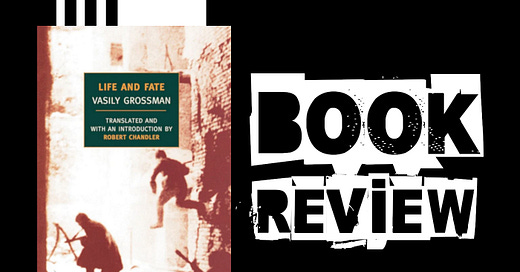



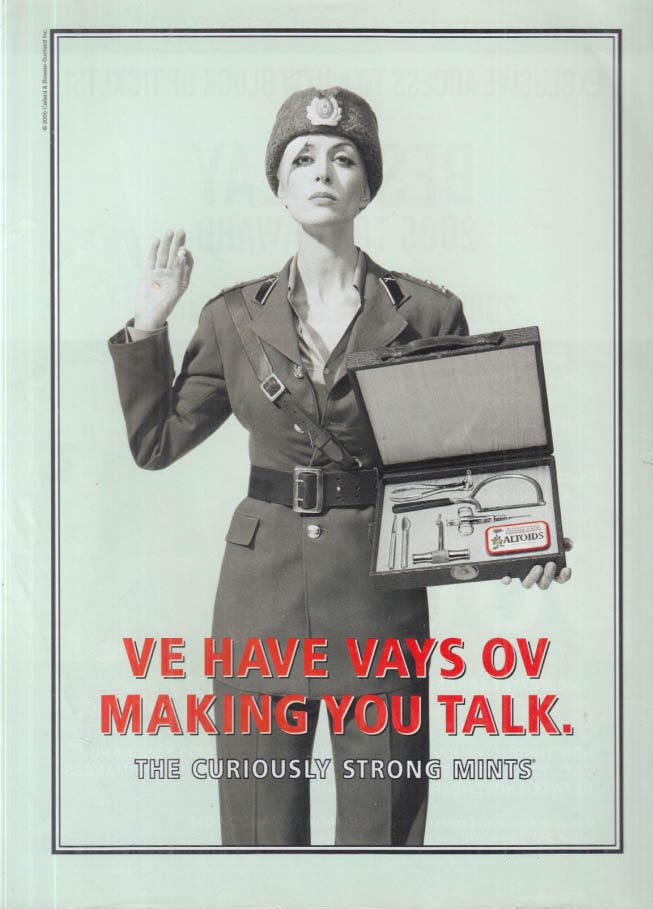
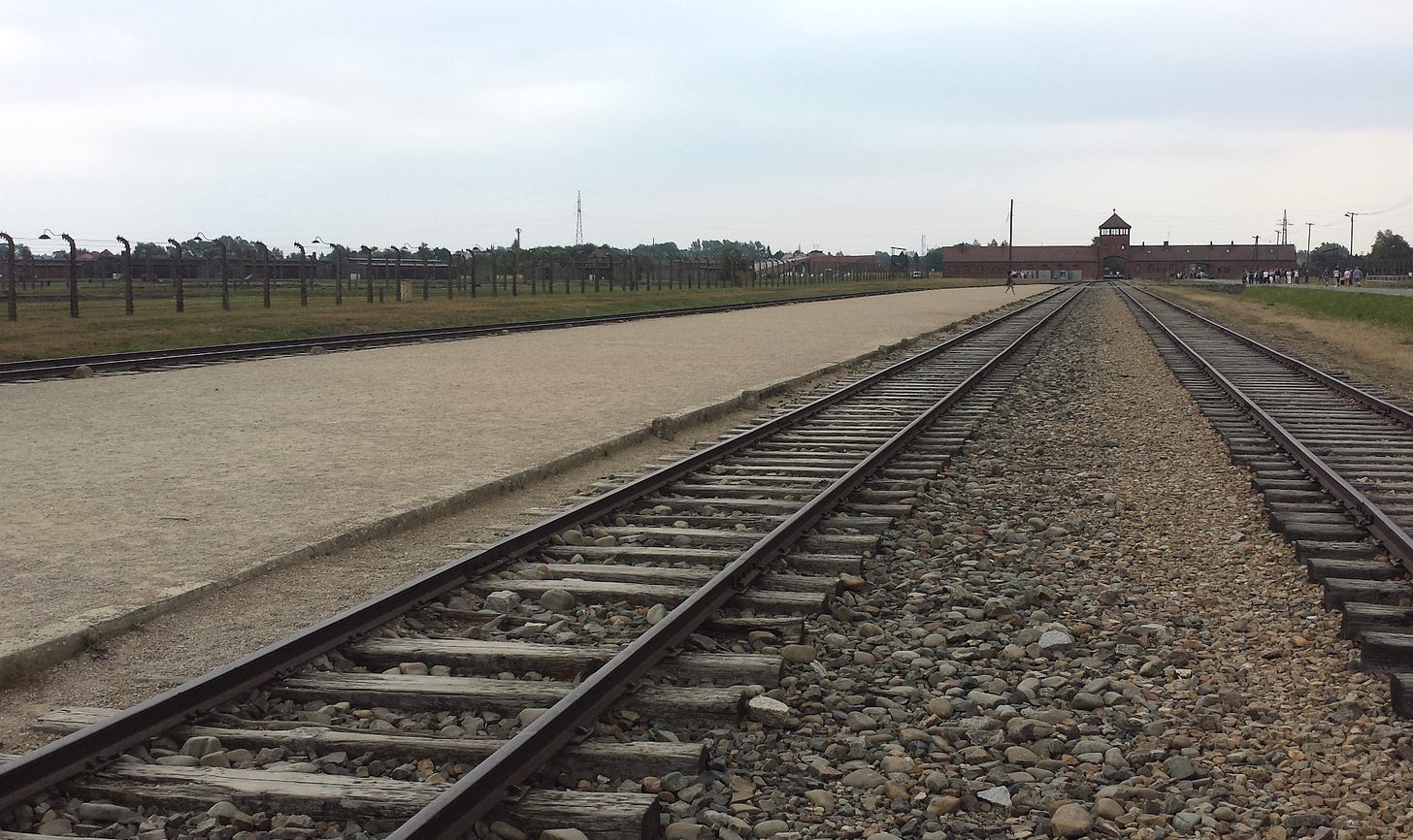
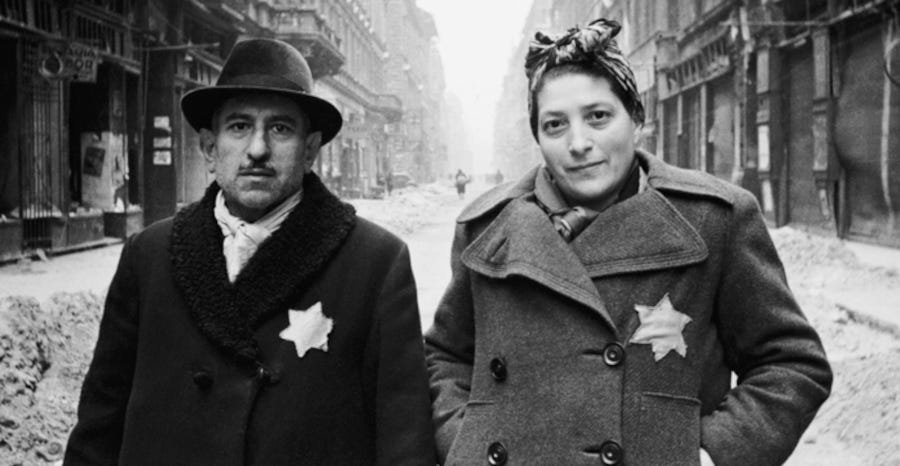
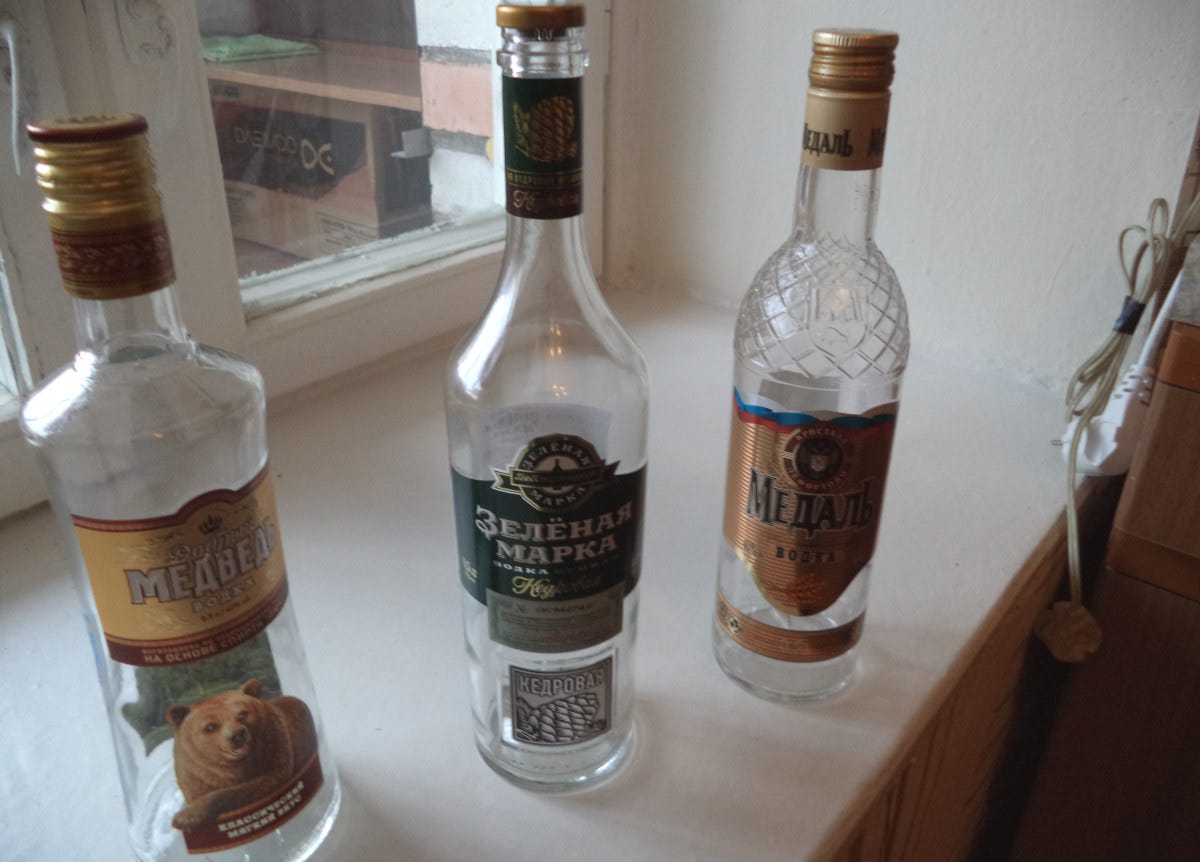

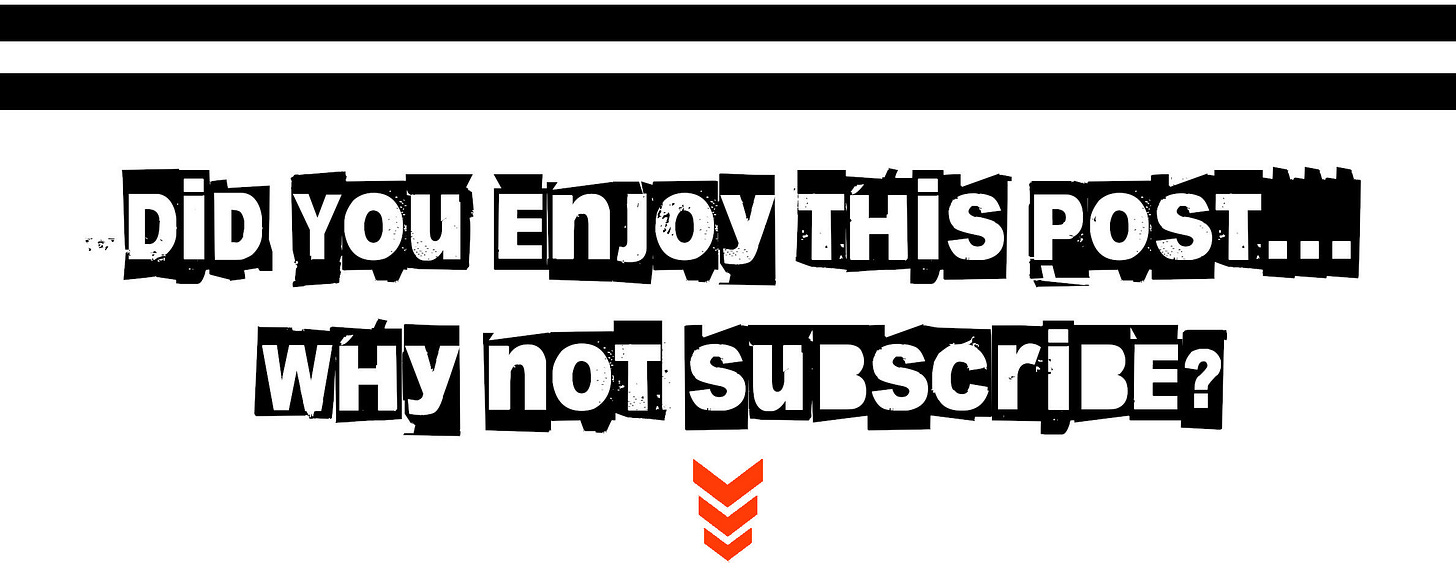
Incredible dive into this novel. I never read it and likely won’t anytime soon. But this essay was filled with meaning. Thanks for this